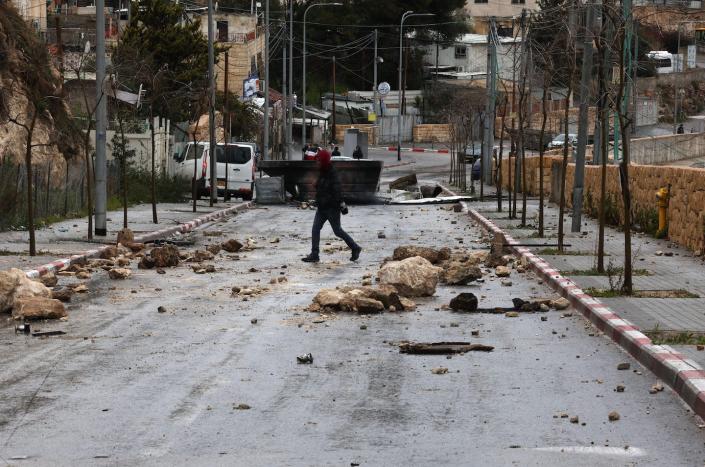
Right after a fatal attack that killed seven men and women exterior an East Jerusalem synagogue, the Israeli authorities responded by sealing off the property of the Palestinian suspect in preparation for its destruction. The family dwelling of a 13-12 months-aged accused in a different East Jerusalem taking pictures has furthermore been earmarked for destruction.
This is not unconventional. Israel has demolished the homes of countless numbers of Palestinians in new many years. Bulldozing houses of people deemed responsible for violent acts from Israeli citizens or to discourage this kind of functions has prolonged been authorities coverage.
But it is also illegal below worldwide legislation. As an professional on international humanitarian law, I know that keeping the loved ones of assailants responsible for their acts – no subject how heinous the crime – falls below what is know as collective punishment. And for the past 70-as well as decades, worldwide legislation has been unequivocal: Collective punishment is strictly prohibited in virtually all circumstances. Still, when it arrives to the demolition of Palestinian homes, global bodies have been not able to implement the ban.
Not vital, not legal
Regulations governing how occupying powers can deal with civilians are protected by the Fourth Geneva Convention – one particular of four treaties adopted after the conclude of Globe War II, largely as a reaction to the horrific excesses of Japanese and German occupying armies.
Posting 33 of the 1949 convention states: “No safeguarded individual could be punished for an offense he or she has not personally committed. Collective penalties and also all measures of intimidation or of terrorism are prohibited.” It provides: “Reprisals towards shielded folks and their property are prohibited.”
Since Israel is an occupying energy in the eyes of the the United Nations, as properly as less than the conditions of both the Fourth Geneva Convention and the before 1907 Hague Convention, then Palestinian civilians underneath Israeli occupation would slide beneath the “protected persons” designation of the Geneva Conventions.
The Geneva Conventions reiterate their placement on shielded folks additional in Report 53: “Any destruction by the occupying energy of serious or personal assets belonging separately or collectively to personal people […] is prohibited, besides in which this sort of destruction is rendered certainly necessary by armed service operations.”
That slight caveat would implement to situations in which, for instance, an armed resistance team utilised a residence belonging to a guarded particular person to fire at an occupying power’s army. But clearly that is not the scenario in the deliberate destruction of a household belonging to an assailant who released an assault somewhere else.
Collective punishment is banned not only by the devices of worldwide humanitarian legislation, but also by human legal rights conventions that apply during peacetime and armed conflicts, which includes profession.
And these kinds of prohibitions are not a quirk of worldwide legislation – they are typical to practically all major lawful programs in the world.
A slim examining
Given how distinct the global laws are, the question occurs: How does Israel square the practice of punitive property destruction with international legislation?
The reply is not really effectively, in the belief of most global humanitarian law authorities and human legal rights observers.
Israel ratified the Geneva Conventions in 1951. But successive Israeli governments have claimed that its protections do not utilize to individuals residing in Palestinian territories, the position of which it disputes.
Other arguments place forward by the Israeli federal government in defense of the demolitions consist of that they influence only the properties of folks engaged in terrorism, and that the purpose is deterrence, not punishment.
But as early as 1968, Theodor Meron, a authorized adviser to the Israeli Ministry of Foreign Affairs, warned that in his impression the destruction of properties of terror suspects in the occupied territories contravened the Geneva Conventions. In a leading-secret doc, Meron rejected a “narrow, literal” interpretation of worldwide regulation in regards the destruction of properties.
UN hamstrung by US veto ability
The United Nations has lengthy condemned the destruction of Palestinian residences, with the body’s specific rapporteur Michael Lynk frequently pointing out that collective punishment violates intercontinental law.
Israeli Key Minister Benjamin Netanyahu has dismissed this kind of condemnation by the United Nations, declaring that the physique reveals “anti-Israeli” bias.
Both way, the United Nations is not in a strong posture to consider action. The U.N.‘s Stability Council is the one particular international entire body that can get effective actions to censure and get coercive action in opposition to member states. But the U.S. has prolonged vetoed resolutions critical of its ally, Israel. Washington is also not likely to assert unilateral force on Israel to finish its observe of property demolitions under its existing coverage. The International Criminal Court dominated in 2021 that it experienced jurisdiction more than territories occupied by Israel, but any investigation would be likely hampered by the noncooperation of the Israeli federal government, which refuses to admit the court’s authority.
As a result, despite the destruction of the residences staying versus the letter and spirit of the Geneva Conventions, there is tiny that can stop the Israeli government from executing so.
This report is republished from The Discussion, an independent nonprofit news website focused to sharing suggestions from educational gurus. The Discussion has a wide variety of fascinating totally free newsletters.
It was created by: Robert Goldman, American College.
Go through a lot more:
Robert Goldman is affiliated with the Worldwide Commission of Jurists





